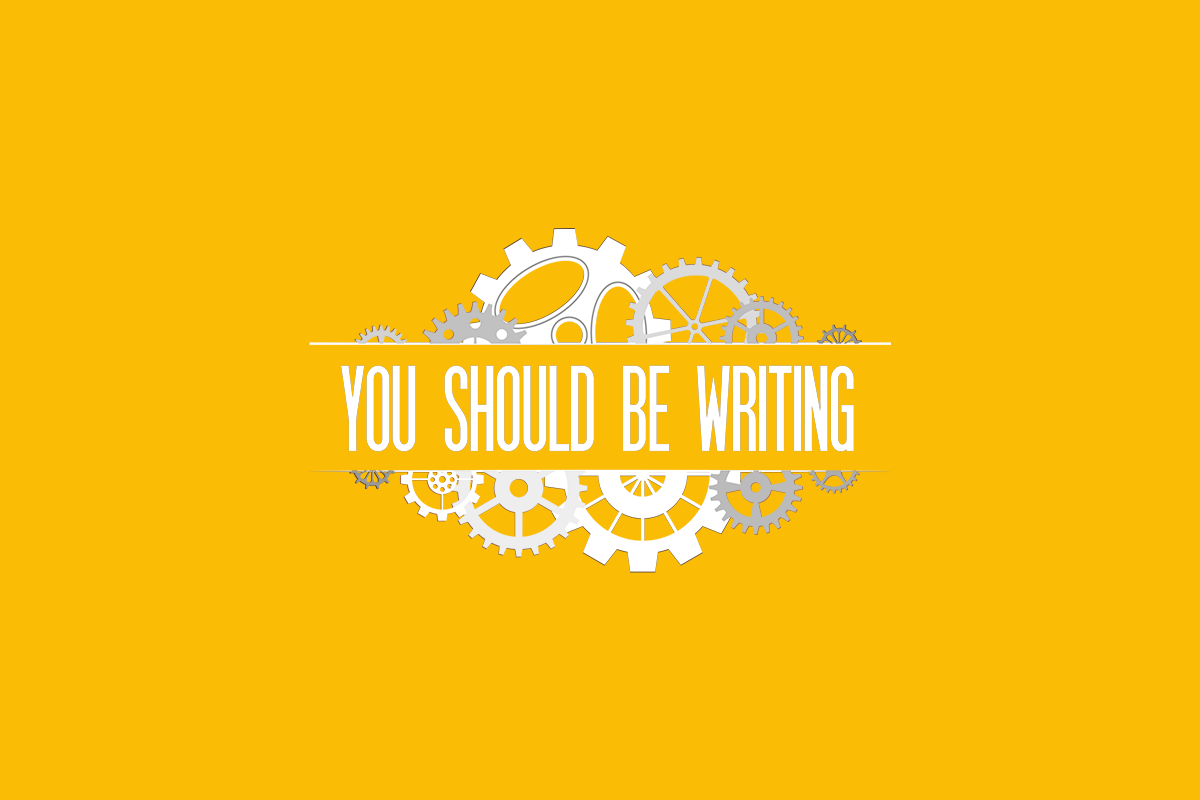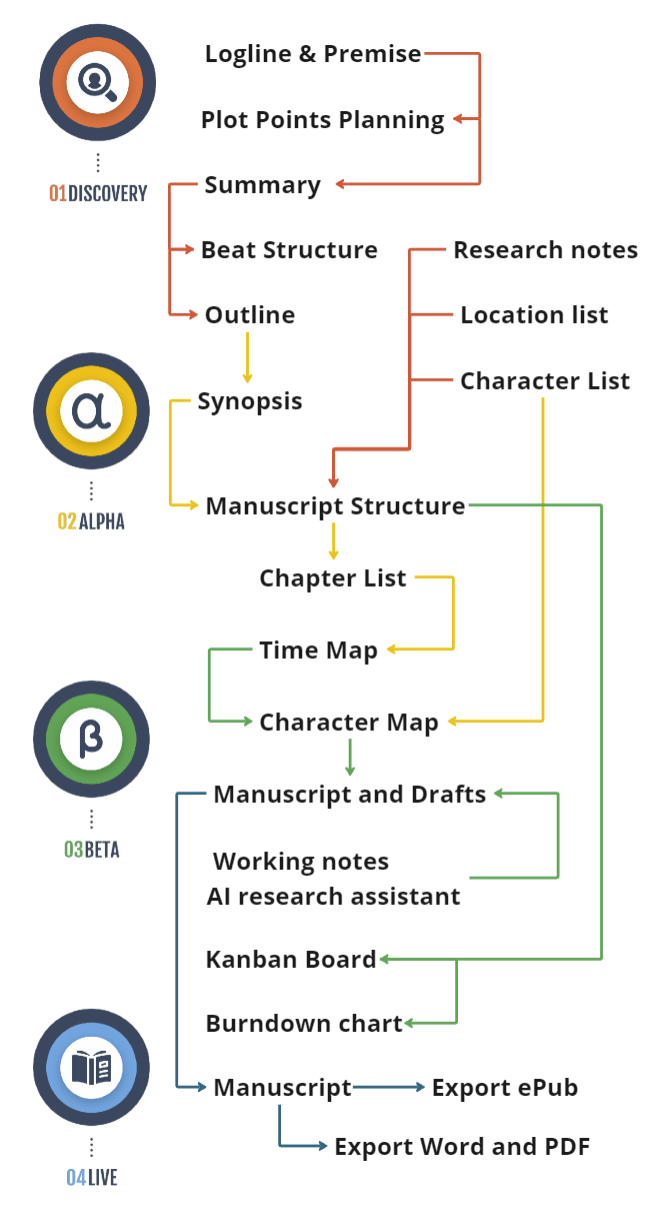The many complementary skills of a writer
or
Why is the way you define Social Media Marketing important?
As an author, in order to use social media, you should start by understanding what social media is, where you should be present, and how to define your objectives. I know that social media is already intrinsic to your daily life and “there’s little anybody can teach me about it”. Nevertheless, you should at least gain an understanding of what to focus on and where to stop.
It’s all about the POV (point of view)
Since each scene in your book is written from the POV of a character, your online life* as an author should be seen from the POV of that part of you with the skills you need to create, produce, and sell your book: Writer, Brand Manager, Marketer, Blogger, Sales person, Customer Relationship Manager, Finance Manager, Editor, Publisher and so on.
 I wear many hats myself, but I’m mainly a project manager. I need a RESULT. I allocate RESOURCES to accomplish it within certain LIMITATIONS: SCOPE, TIME, QUALITY, and COSTS.
I wear many hats myself, but I’m mainly a project manager. I need a RESULT. I allocate RESOURCES to accomplish it within certain LIMITATIONS: SCOPE, TIME, QUALITY, and COSTS.
What you are about to read next adheres to these principles. It’s a choice between juggling with dozens of fresh eggs (personal life, work, writing, social life, dreams, failures, bad or good interactions with people or societal archetypes and so on) and calmly building a huge 10,000 pieces puzzle based on a Vincent Van Gogh picture. Neither one is easy, but I would rather do a puzzle.
*From the POV of a savvy social media user as we all are, what’s coming next will be booooring.
It is also important for setting a framework and defining the limits of your actions online.
Time is a limited resource. Learn to say no and to control what you do with it.
What is social media?
Following are three customized definitions. A starting point for a unique and personal definition of yourself as a writer.
The READER’s definition – Social media is a form of social interaction. It encompasses all forms of expression published online with the help of dedicated, easy-to-use instruments.
The above definition is enough if you want to use social media for your personal life. From this perspective, you represent a client or a potential client for a business. You are a reader or a potential reader for an author.
The BUSINESS definition – Social media is a form of multidirectional communication through online services. The purpose is increased sales, awareness and PROFIT.
For a business, the definition entails a complex meaning substantiated by the number of products, markets or stakeholders involved.
![]() The WRITER’s definition – Social media is a form of bidirectional communication through online services. The purpose is increased number of READERS.
The WRITER’s definition – Social media is a form of bidirectional communication through online services. The purpose is increased number of READERS.
Being a professional author is a business. Getting more readers and selling books gives you the freedom to write more books.
Where in social media should you be present?
Social media is part of a JOURNEY toward building relationships and not a DESTINATION of choice.
No matter where the act of buying a book is completed (Amazon.com, your own website, etc.), you should use social media to:
- Bring readers to your website.
- Direct them towards a system where they can buy and leave reviews.
- Interact with them directly, answer their questions, find out what they like or dislike, and send emails with news, offers and others.
It is difficult to make a classification of the social communication channels. The complementary use of most of them is more effective and brings in better results. Understanding and using some of them by yourself might take some time but it will give you a holistic view over your digital reality.
1. Website/Blog – Probably the most important. The content is chosen and controlled by the owner (you).
2. Open Social Networks (Facebook, Twitter, LinkedIn, Amazon, etc.) – The content is created by the author, but it is not owned by her/him and the level of visibility is money dependent. This is especially valid for Facebook where the visibility of the published content is extremely reduced without Facebook Ads spending. To expand a little on the Open Social Networks, this is how I perceive them:
- Facebook is like a cafe where you meet your old friends and make new ones. It’s a place in which you need to be careful about how loudly you talk. You never know who might be eavesdropping from another table.
- LinkedIn is a professional environment. Here, people come to learn, to do business, but mostly to introduce themselves as professionals. You can network with people that like to read and also meet people involved in the publishing industry. The language you use and the way you “dress” your visual/virtual self are important.
- Twitter is like a cocktail after-party. Many people, in the same place, discussing about various topics. The sentences are short and easy. Hence the virality of it. You can listen, contribute to the conversation or join another group to “spread the news”,
- The last, but also just as important, is Amazon.com. This is the most relevant social network for a writer these days. Here, you have your dedicated Author Page that allows you to professionally present yourself and a priceless form of interaction with your readers: the book reviews.
3. Specific media distribution channels (YouTube, Vimeo, Flicker, Pinterest, Instagram, etc.) – The content must be specifically created for the channel – video, audio, photo.
4. Closed Social Networks (Goodreads, Wattpad, etc.) – The “closed” element is a characteristic of specialized networks. In our case, it refers to online communities which are dedicated to writers or used by a group of writers for a specific purpose.
5. Bookmarking and news services (StumbleUpon, Digg, Del.icio.us, Reddit) – Websites that aggregate recommendations from other users.
6. Geolocation services (Foursquare, Google Maps or similar).
It’s a lot. Be smart about placement. Which networks do you want to use and what for? Don’t just drop stuff on Facebook because it’s the biggest.
After writing a short story (interwar romance) —The Baroness’s Heart— I didn’t just offer it online. I spoke with a small printing house and printed it in small format (twice the size of a game card), using a typing machine font, on recycled paper. It looked like one of those books published in the 1920’s that people got as a freebie with the Sunday’s newspaper.
I went to the owner of my favorite coffee shop in Bucharest (The Front Room – Camera din Fata) and asked him if he would read it and give it for free to some of the clients he appreciated most. In less than a month, he gave away almost 200 copies and I got quite a few emails from people telling me they liked the story and also online orders for my novel, The Right Place.
Now I’m rewriting the story as a novella using Asengana. Yes, I’m the first writer using our platform. We are using this project as QC (quality check) for developers and UAT (user acceptance test) for beta users.
The writer’s objectives in using social media
To approach social media as a professional writer means that you’ll have to wear a different hat to sell your books than that of the normal user. You’ll wear the hat of a Social Media Manager. A job you need to master and notions you need to learn as you would learn about any other field. While as a human being it is important to be genuine, it is also important, as a professional, to design a how-to-present-my-ideas-to-my-potential-readers strategy.
These are the main responsibilities of a Business Social Media Manager:
- Creates the ONLINE SOCIAL PRESENCE of a business.
- Creates, distributes and updates online content.
- Builds and increases the reputation of the business.
- Keeps the actual clients informed and brings in new clients.
In your case, you’re an employee of your writer persona. Your main responsibilities as Writer’s Social Media Manager are:
- Create the ONLINE SOCIAL PRESENCE for yourself, the writer.
- Create, distribute and update online content.
- Build and increase the writer’s reputation.
- Keep the actual readers informed and bring in new readers.
BEING ON SOCIAL MEDIA is NOT the same with USING SOCIAL MEDIA AS A PROMOTIONAL TOOL. One should make the difference between finding and interpreting information online or having an opinion and placing the information in a specific context. That means you will have to go beyond sharing the link to your book on a social network or in a writers’ group (other writers might not even be your potential readers at all).
Your objectives in using social media should be:
- Create an ONLINE SOCIAL PRESENCE for better visibility, awareness and increased reputation.
- Actively maintain the communication channels with your readers: website/blog, social networks, etc.
- Use your resources and those of your connections (sometimes your publishing house) to gain more readers.
Don’t let yourself be distracted by “nice thoughts” like: “write a good book and the readers will come”. As any other business, publishing (writing, editing, and selling) a book is about meeting your buyer / reader halfway.
You should also read:
SMM 2/7 – Personal branding for writers
SMM 3/7 – The website – a writer’s castle
SMM 4/7 – The story about you writing your story
SMM 5/7 – Social Networks – a like value is 0
SMM 6/7 – DIY Social Media Marketing Plan for writers
SMM 7/7 – Project Management for writers – Kanban




